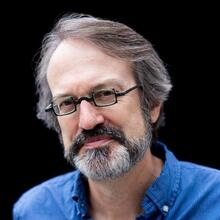When “Camera as Gun” is not a Metaphor: Violence in the Art & Life of Adachi Masao
Markus Nornes - Professor of Asian Cinema, University of Michigan
The Council on East Asian Studies is pleased to present the 24th Annual John W. Hall Lecture in Japanese Studies.
A reception will follow from 6:00pm to 7:00pm in the Luce Common Room (2nd Floor).
In the 1960s, Adachi Masao was ubiquitous on the Japanese film scene. He made stunningly surreal experimental films. He exploited the soft-core pink film to political ends. He wrote scripts for the likes of Oshima Nagisa and Wakamatsu Koji, and played bit parts in their films. He also wrote important essays on political cinema. In the 1970s, Adachi made a documentary with the Popular Front for the Liberation of Palestine and took the film around Japan on a red bus. Shortly after that, he left on what he calls his “business trip” (shutcho) to Lebanon, where he went underground with the Japanese Red Army for over 25 years. After arrest, extradition and some jail time, he’s once again ubiquitious in Japanese film culture. What’s more, he’s been discovered outside of Japan and celebrated for his militantly political cinema. There’s a sense, however, that he may be celebrated, but not taken seriously. At his word, as it were. This is an attempt to rethink Adachi’s cinema through the rubric of violence and pain, both imagined and real.
Markus Nornes is Professor of Asian cinema at the University of Michigan, where he specializes in Japanese film, documentary and translation theory. He has done extensive programming on the international film festival circuit, especially at the Yamagata International Documentary Film Festival. He has written books on Japanese documentary, City of Sadness, film translation, pink film and a critical biography of director Ogawa Shinsuke. His latest book, Brushed in Light, is on the intimate relationship of calligraphy and East Asian cinema. Nornes has also directed a number of documentaries, including When We’re Together (2020), The Big House (2018, co-directed with Soda Kazuhiro et al), 911 (2001), and a 5-screen video installation entitled Player Played (2019).

